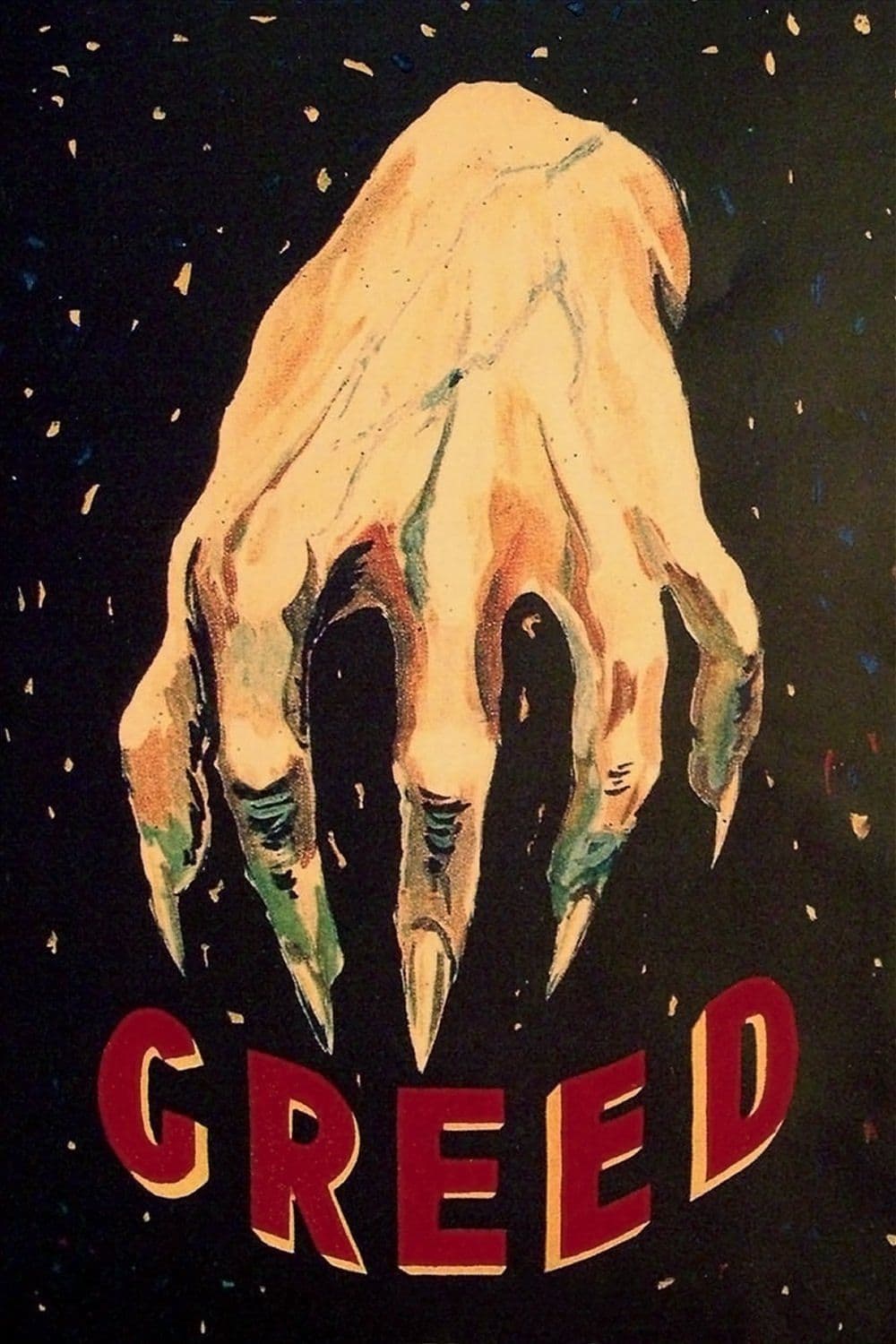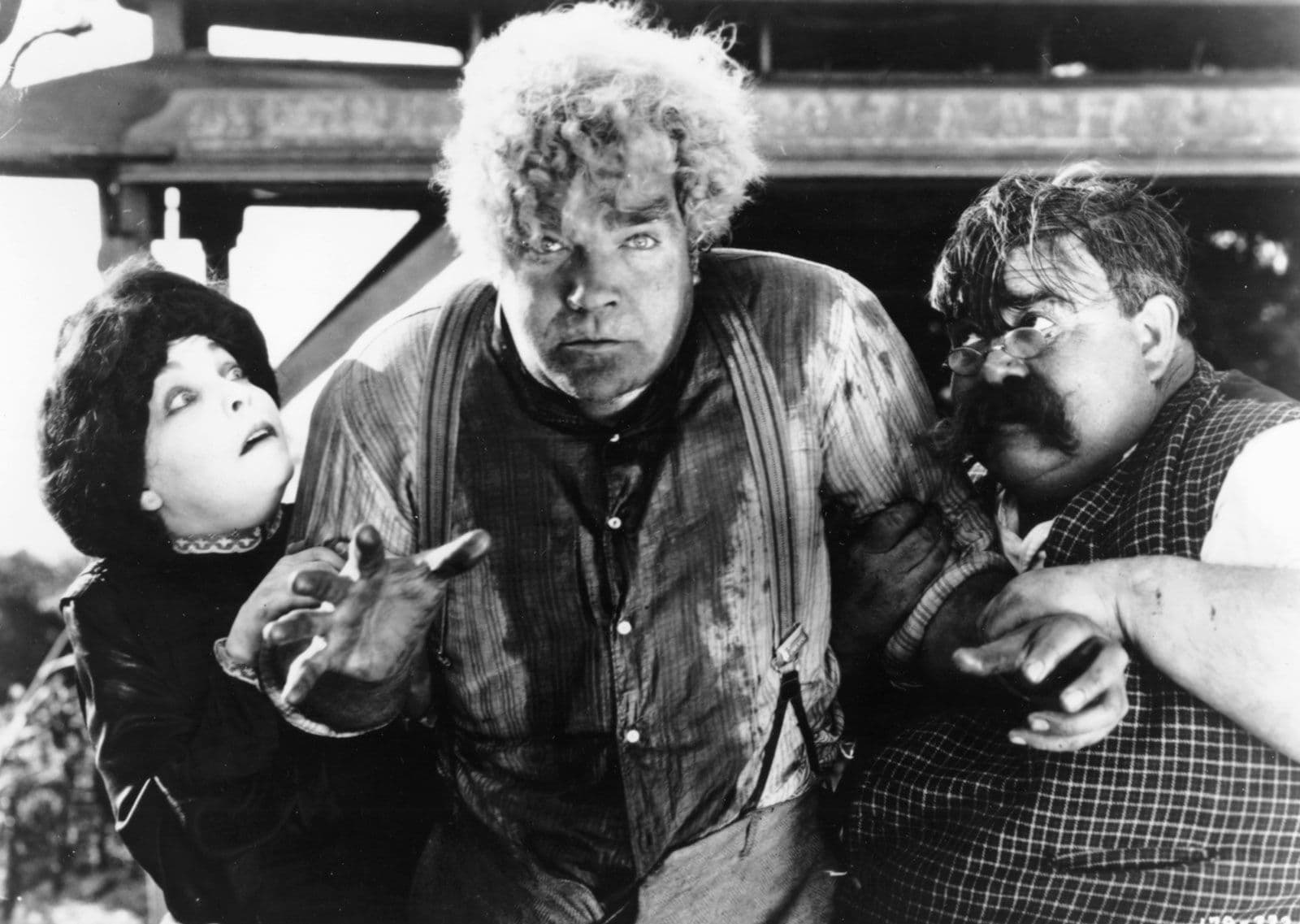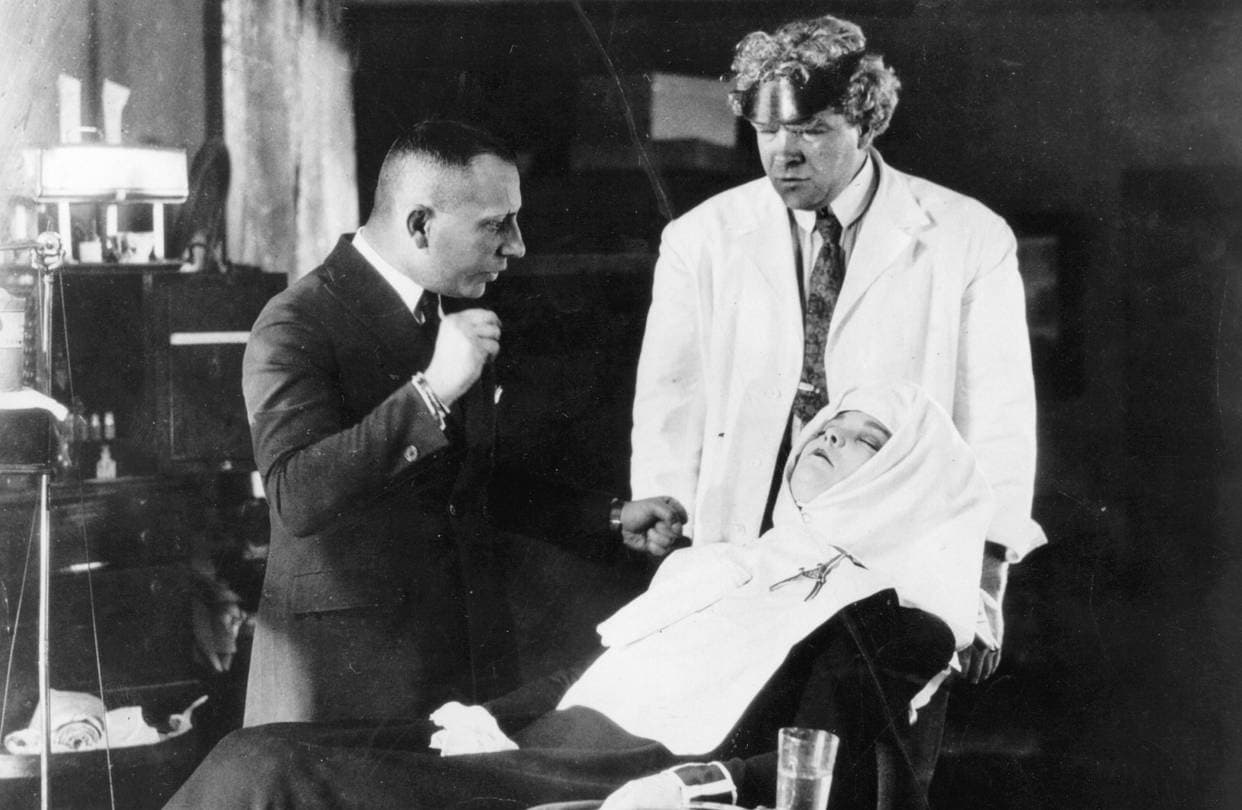
Greed
1924
Rate this movie
Average: 0.00 / 5
(0 votes)
Director
A visionary, obsessive, and cursed work, yet brilliant in its whirlwind exploration of corrupt psychologies. Erich von Stroheim was never fully understood; he was such a disliked and controversial figure that Abel Gance declared about him: "A genius, a man of immense capabilities who was rendered harmless, forced to act for a living under mediocre directors." This bitter realization perfectly grasps the tragedy of an auteur whose titanic ambition clashed head-on with the commercial logic of a nascent Hollywood, embodied by figures like the powerful Irving Thalberg of MGM. Von Stroheim was a fervent supporter of cinematic naturalism, a movement that, drawing directly from the literary roots of Émile Zola and his disciples, aimed to represent reality in a raw, unflinching, and, above all, uncompromising way, without moralistic compromises or embellishments. In this work, the director focuses on the psychological analysis of characters with an almost clinical precision, exploring their darkest desires, their deepest obsessions, and their innate, often ignoble, urges. The film thus becomes a scathing critique of American society, which sees greed and corruption not as deviations, but as the main drivers of human behavior—a bitter reflection on the failure of the American Dream in its most materialistic and ruthless manifestation. Von Stroheim's visual style is characterized by long and deep shots, a proto-experimentation of deep focus that allowed him to capture every minute detail of human and environmental misery, creating a sense of claustrophobia and oppression that was not only spatial but also spiritual. The narrative is slow and detailed, with a rhythm that does not seek dramatic shortcuts, but reflects the inexorable slowness with which inner tragedies and the moral decline of its antiheroes unfold.
At the heart of the narrative we find McTeague, a simple dentist of German origin, an embodiment of a primitive, almost bestial force, and Trina, a young woman with a heart of gold, at least on the surface, but intrinsically obsessed with money. Their marriage, initially marked by a sincere love, an almost rough but authentic tenderness, transforms into a spiral of greed and destruction when Trina wins a considerable sum in the lottery. This win, far from being a blessing, proves to be the cruelest of curses, a catalyst that brings to light the latent pathologies of the protagonists. Gold, instead of unifying the couple, accentuates their differences and fragilities, becoming a poison that corrodes every glimmer of affection and every bond of humanity. McTeague, increasingly dominated by Trina's obsession with money and his own frustration, transforms into a violent and possessive husband, his primordial brutality amplified by his wife's madness. Their love story degenerates into a foretold tragedy, which will lead them to lose themselves in the desolate vastness of the Californian desert, a naked and ruthless landscape that perfectly reflects the moral and spiritual void that has engulfed them, culminating in a final confrontation of biblical brutality. Around them, a gallery of marginal and corrupt characters, such as Marcus, McTeague's friend in love with Trina, whose envy and pettiness mirror nascent depravity, and Aunt Mac, Trina's maternal figure, who embodies a more subtle and socially accepted form of avarice, contribute to creating a gloomy and oppressive atmosphere, a vivid portrayal of a world where every value has been hollowed out.
A work mutilated by the producers in one of the most controversial episodes in film history. Originally conceived to be an epic of over nine hours, Von Stroheim's vision was brutally compressed, first by himself to almost four hours for the premiere, then reduced by MGM to just over two hours, leaving behind legends of lost reels and an incurable wound in the director's soul. Yet, even in its truncated form, "Greed" stands as an extraordinary film about sordid human impulses, about the annihilation of every shred of humanity in the face of the ruthless reality of money and pure, blind avarice. "Greed" is a quintessential example of introspective cinema, a viewpoint that tends to emphasize the psychological and inner aspects of characters with a depth and ruthlessness almost unprecedented for the era. Based on Frank Norris's novel "McTeague," the work reflects the social indictment that Norris intended for his narrative, with particular attention to the representation of the working class and its frustrated aspirations in a context of social Darwinism. But Von Stroheim managed to transcend the atmosphere of the book by imbuing the narrative with an obsessive and paranoid undertone that elevated the social critique to universal human drama. All this is strikingly evident in the wedding banquet scene between McTeague and Trina. In the novel, Norris describes the banquet in detail, highlighting the opulence and splendor that contrast with the poverty of the protagonists—a mere sociological fact. In the film, Von Stroheim uses a series of suggestive shots and penetrating close-ups not only to highlight the tension and hypocrisy that characterize the event, but also to instill a sense of foreboding, of imminent doom, generating an effect of suspense and anticipation that paralyzes the viewer. Every gaze, every gesture, every object on the table becomes a symbol laden with meaning, foreshadowing the coming tragedy. With this work, therefore, psychological inquiry forcefully emerges in cinema, no longer as a narrative accessory but as a pulsating core, making Von Stroheim an authentic precursor and a model capable of inspiring countless future directors, from Orson Welles – whose depth of field in Citizen Kane partly echoes the visual complexity of Greed – to the masters of Neorealism who, though with different intentions, shared the same attention to raw reality, up to the great auteurs of film noir and psychological drama, who would continue to explore the abysses of the human psyche with the same audacity and the same, ruthless, eye.
Country
Gallery




Featured Videos
Official Trailer
Comments
Loading comments...